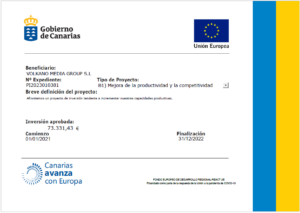They offer different methods and techniques to meet your loved one’s needs. An interventionist can help the family understand the issues the addicted person faces. They can also help the addicted person get admitted to a dual-diagnosis treatment facility. These facilities specialize in treating both addiction and mental illness. Many teens turn to alcohol to relieve stress, cope with the pressures to fit in or succeed at school, self-medicate other mental health issues, or to deal with major life changes, like a move or divorce.
Choose An Intervention Meeting Place And Time
During an intervention, loved ones express their concerns to the person with the alcohol addiction, hoping that the person will agree to go to treatment. At the conclusion of an intervention, the person is often offered an opportunity to seek treatment for alcohol misuse. An intervention refers to a meeting or series of meetings in which concerned family members and friends come together to confront a loved one about their alcohol addiction. An intervention can be a surprise meeting, in which loved ones confront a person with an addiction, or it can be a planned meeting, that the loved one knows they will be attending.
Types of Professionals Involved in Care

The Mayo Clinic explains that interventions offer an opportunity to make changes and accept help before addiction issues get worse. Forcing or requiring your loved one to enter treatment can be counterproductive. Instead, interventions focus on asking a loved one to enter treatment and convincing them it’s the right thing to do. Sober House It’s important to recognize that interventions should encourage or motivate a loved one with addiction issues to seek treatment. Your loved one’s motivation for recovery hinges on the encouragement and support they get from others around them. AAC accepts many private insurance policies, as well as some Medicaid policies.
- Explore Mayo Clinic studies testing new treatments, interventions and tests as a means to prevent, detect, treat or manage this condition.
- Professionals in the alcohol treatment field offer advice on what to consider when choosing a treatment program.
- Finding the right treatment option involves researching providers and choosing one that aligns with your loved one’s needs, starting with a detox program.
Encouraging your loved one to get help
Certain medications have been shown to effectively help people stop or reduce their drinking and avoid relapse. Here’s some information to help you get ready for your appointment, and what to expect from your health care provider or mental health provider. Take our free, 5-minute alcohol abuse self-assessment below if you think you or someone you love might be struggling https://businesstribuneonline.com/top-5-advantages-of-staying-in-a-sober-living-house/ with alcohol abuse. The evaluation consists of 11 yes or no questions that are intended to be used as an informational tool to assess the severity and probability of an alcohol use disorder. The test is free, confidential, and no personal information is needed to receive the result. These include Ozempic and Wegovy, which are FDA-approved for diabetes and weight loss.
Helping Someone with a Drinking Problem
- From this intervention, you can hopefully direct the addict toward a doctor, detox program, or support group that can help them face the realities of addiction and get on the path to recovery.
- Mental health and wellness tips, our latest guides, resources, and more.
- Interventions also help show those with SUDs how their actions affect those they care about.




